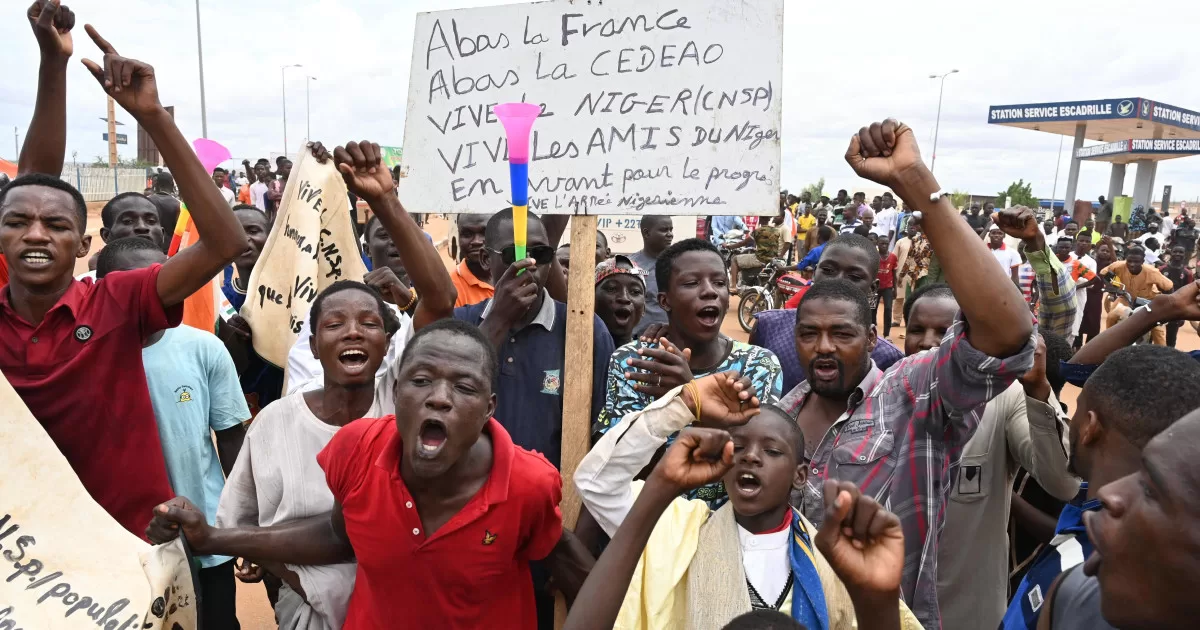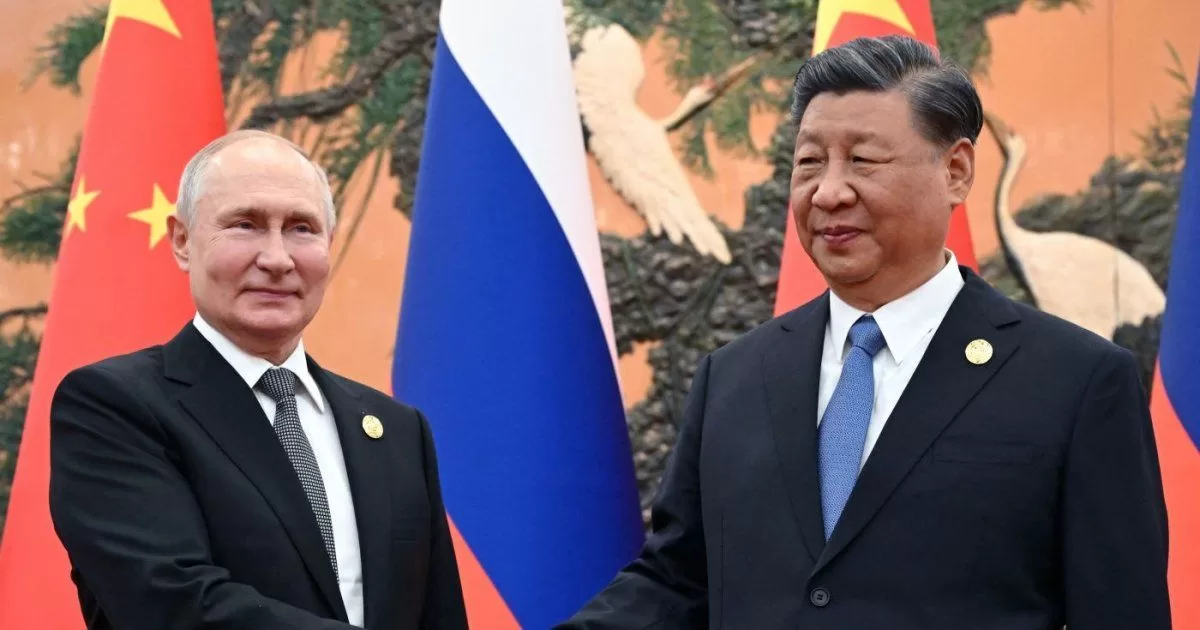Monday, January 9, 2023 | 4:50 p.m.
Brazilian authorities have vowed to protect democracy and are preparing to impose punishment after thousands of supporters of former President Jair Bolsonaro stormed Congress, the Federal Supreme Court and the presidential palace and vandalized the country’s main seats of power.
Protesters on Sunday called for a military intervention to restore the far-right Bolsonaro to power or oust newly installed leftist President Luiz Inácio Lula da Silva, in scenes of chaos and destruction reminiscent of the January 6, 2021 insurrection. at the United States Capitol.
Rioters dressed in the green and yellow colors of the national flag smashed windows, toppled furniture and threw computers and printers to the ground. They pierced a huge painting by Emiliano Di Cavalcanti in five points, overturned the U-shaped table where the judges of the Federal Supreme Court meet, tore down the door of a judge’s office and vandalized an emblematic statue in front of the court. The interiors of the monumental buildings were left in a state of ruin.
At a press conference on Sunday night, the institutional relations minister said buildings would be inspected for evidence such as fingerprints and images to hold people to account, noting that rioters appeared to be planning similar actions throughout the country. Justice Minister Flávio Dino said the acts amounted to terrorism and a threat of a coup and that authorities had begun to identify the people who paid for the buses that brought protesters to the capital.
“They will not succeed in destroying Brazilian democracy. We must say it emphatically, with all the firmness and conviction”, said Dino. “We will not accept the path of criminality to fight political battles in Brazil. A criminal is treated as a criminal.
So far 1,200 people have been detained, the Justice Ministry reported on Monday. Police were remarkably slow to react, even after more than 100 buses had arrived, leading many to wonder whether authorities simply ignored numerous warnings, underestimated the strength of the protesters, or were complicit in some way.
In the months that followed Bolsonaro’s electoral defeat on October 30, Brazil was on edge, wary of any path the outgoing president might take to cling to power. Bolsonaro fueled among his most faithful followers the belief that the electronic voting system was prone to fraud, although he never presented any proof. And his son, lawmaker Eduardo Bolsonaro, held several meetings with former US President Donald Trump, Steve Bannon, a longtime Trump ally, and his campaign adviser Jason Miller.
The results of Brazil’s election — the closest in three decades — were quickly recognized by politicians across the political spectrum, including some Bolsonaro allies, and dozens of governments. And Bolsonaro surprised almost everyone by disappearing from sight. He did not admit defeat or denounce fraud, although he and his party requested the annulment of millions of votes, a request promptly dismissed.
Brazilians have used electronic voting since 1996. Election security experts consider it a less secure system than hand-marked ballots because they do not leave an auditable paper record. However, the Brazilian system is closely watched by the authorities and by international observers, who have never found evidence of manipulation to commit fraud.
Even so, Bolsonaro supporters rejected the results. They blocked roads and camped in front of military buildings, urging the armed forces to intervene. The protests were largely peaceful, although isolated threats of terrorism — such as a bomb found in a fuel truck en route to the Brasilia airport — raised security concerns.
Two days before Lula’s inauguration on January 1, Bolsonaro flew to the United States and settled temporarily in Orlando. Many Brazilians expressed relief that, although he declined to participate in the transition of power, his absence allowed it to take place without incident. Or so it was, until Sunday.
“Bolsonarism imitates the same strategies as Trumpism. Our January 8, an unprecedented demonstration in Brazilian politics, is clearly copied from January 6 at the Capitol,” said Paulo Calmon, a professor of political science at the University of Brasilia. “Today’s sad episodes represent a new attempt to destabilize democracy and show that the populist and authoritarian radicalism of the Brazilian extreme right is still active under the leadership of former President Bolsonaro, the ‘Trump of Latin America.'”
US President Joe Biden described the riots as an “attack on democracy and the peaceful transfer of power in Brazil” in a tweet, saying he looked forward to continuing to work with Lula.
At a press conference from the state of Sao Paulo, Lula read a decree recently signed by the federal government to take over security in the federal district. “Fascist fanatics” and all those who financed their activities must be punished, he said. The president also accused Bolsonaro of urging them to insurrection.
Bolsonaro rejected the president’s accusation on Sunday night. In a tweet, he stated that peaceful protest is part of democracy, but vandalism and the invasion of public buildings were “exceptions to the norm.” He did not specifically mention the actions of the protesters in Brasilia.
“Obviously, he is the intellectual mentor of what is happening, so he cannot distance himself from it,” said Mario Sérgio Lima, a political analyst at Medley Advisors. “These groups were created by him, by the radicalism that he imposed on politics. And there is no way to undo it (…) It seems that his group has already crossed the Rubicon ”.
Unlike the 2021 attack in the United States, few officials worked in major government buildings on a Sunday. And videos of the event showed a limited presence of the capital’s military police. That left many in Brazil wondering if the police had ignored the many warning signs, underestimated their capabilities, or been complicit in some way.
A video showed a group of protesters making their way through a police barricade after little scuffling, with only a few officers using tear gas. In another, agents were seen standing while protesters stormed Congress, including one who was recording images with his cell phone.
“This was a serious mistake by the federal district government. It was a foretold tragedy,” said Thiago de Aragão, director of strategy at the Brasilia-based political consultancy Arko Advice. “Everyone knew that (the protesters) were coming to Brasilia. The federal district government was expected to prepare a response to protect the capital. They didn’t do any of that.”
In his press conference, Lula denounced “incompetence or bad faith” on the part of the police and promised that some would be punished. The governor of the federal district, Ibaneis Rocha, confirmed on Twitter that he had dismissed the capital’s public security chief, Anderson Torres. Local media reported that Torres was in Orlando on vacation and that he denied having met Bolsonaro there.
“Two years after January 6, the legacy of Trump continues to poison our hemisphere,” US Senator Bob Menendez, who chairs the Senate foreign relations committee, tweeted, adding that he blamed Bolsonaro for inciting the actions in Brasilia. “Protecting democracy and holding evil actors accountable is essential.”
Lula pronounces on anti-democratic acts https://t.co/c2Wnk9X39F
– Lula (@LulaOficial) January 8, 2023





